Commonly, out-of-balance tires and misaligned wheels cause such shaking. But apart from these two: damaged wheel bearings, faulty suspensions and/or joints, and malfunctioning spark plugs are other culprits that can cause your car to shake at 80 mph.
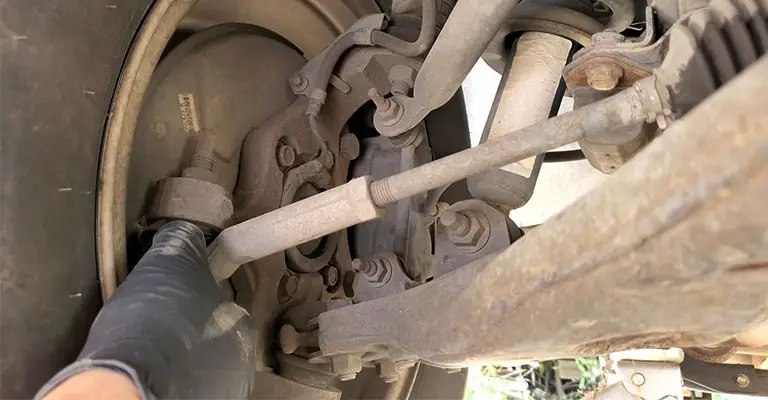
Why Does My Car Shake at 80 Mph?
On a flat road, driving should be smooth despite the speed. But sometimes some issues can develop in your car with time which can cause shaking and vibrations. In some cases, these vibrations cannot be noticed at lower speeds and can be felt only when the speed reaches around 80 mph.
Finding the exact problem that causes your car to shake at 80 mph can be hard. The most likely reasons are categorized for you here.
Tire Problems
Tire problems are the frequent ones that make the car vibrate at high speeds. The most common tire problems are:
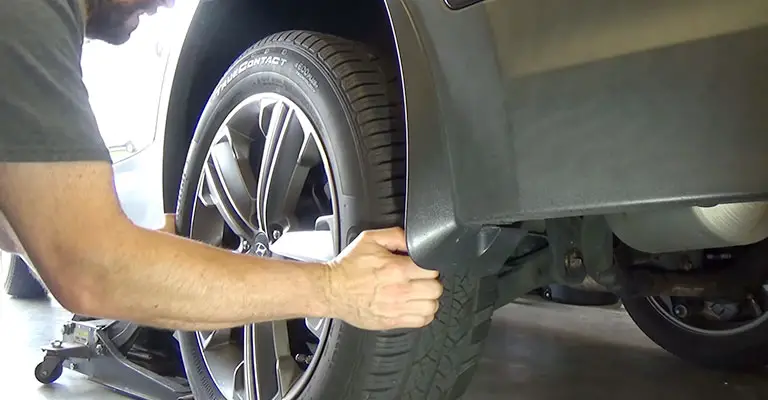
Imbalanced Tires
Shaking at 80 mph is mostly caused by imbalanced tires. In this case, the vibration may not be noticed at low speeds. As the speed increases, the vibration builds up and feels more prominent around 70 to 80 miles per hour. You can ensure whether your tires are out-of-balance or not by checking for flat spots.
Take your car to a tire shop and balance those tires. This process involves computerized balancers which calculate the extra weight required to solve the issue. But if the tires are damaged excessively, you may need to change them.
Uneven Tire Wear
Sometimes vibration at high speeds occurs due to uneven tire wear. A tire can wear out because of wheel misalignment or poor tire quality. Check the tread pattern of the tires to spot irregularity. Rotate the tires if you see more wear on one side. If the tires are heavily damaged, you will need to change them.
Underinflated Tires
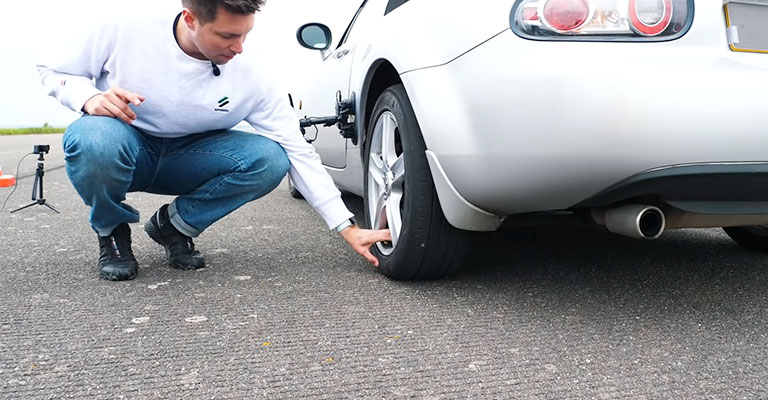
Vibrations can cause too if the tires are not inflated properly. Use a tire pressure gauge to check the pressure. If it is lower than the manufacturer’s recommended level, bring them to recommended pressure using an inflator. To reduce tire pressure, and drop in cold weather, keep the pressure 3 psi above the suggested level.
Wheel Problems
When the car shakes at high speed due to wheel problems, the vibration is mostly felt by the steering wheel. Common wheel problems include:
Misaligned Wheels
Wheel alignment can deflect as a consequence of hitting something, such as curbs, potholes, or other objects. Misaligned wheels cause abnormal steering wheel behavior, such as shaking steering wheel, tiled steering wheel even when driving straight, noisy steering, etc.
Sometimes, tire conditions indicate a misaligned wheel too. For example, severe tire wear, screeching tires, etc. If you notice any of the above problems, you should take your car to a repair shop to check the wheel alignment. If necessary, a mechanic will realign your car’s wheel using a wheel alignment machine.
Damaged Wheel Bearings
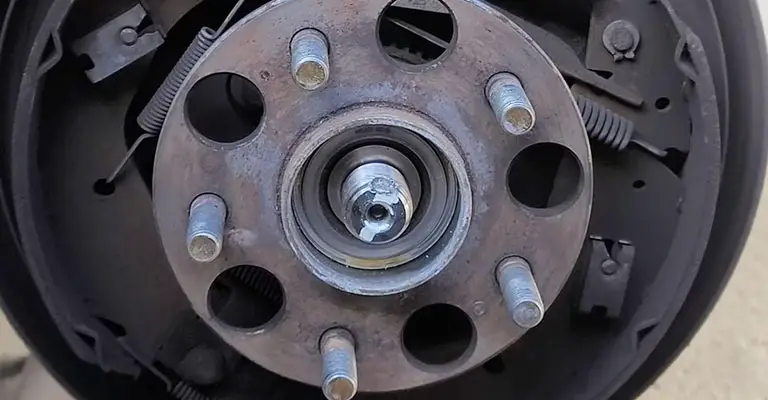
Even though wheel bearings don’t get damaged frequently, sometimes they can wear out or may start malfunctioning for various reasons. A worn-out or damaged wheel bearing can make the car start to shake at a higher speed.
Wheel Runout
Wheel runout means the fluctuation of a circular spin of any of the wheel components. It can be measured with a dial; indicator. In this case, the car jiggles at a slow speed. As the speed increases, the car starts vibrating and tends to shake severely around 80 mph or higher speeds.
Engine Problems
Engine problems do not usually make your car shake at higher speeds. However, some reasons can cause vibrations. Such as:
Malfunctioning Spark Plugs
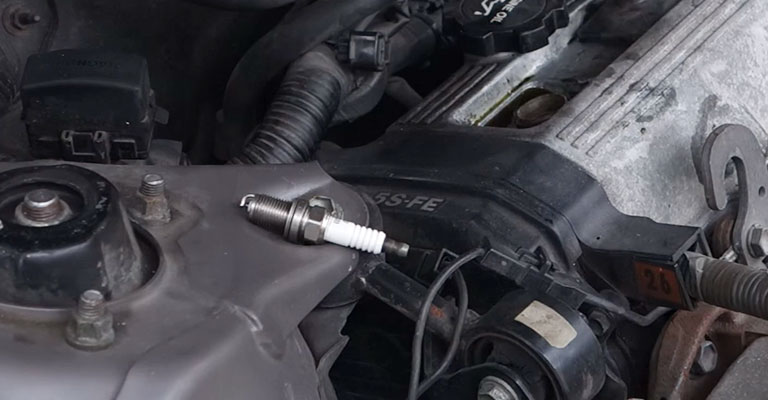
If the spark plugs do not function properly, the engine’s internal pressure can drop. This can lead to power loss which can cause rough shaking.
If your car has an RPM gauge you can easily diagnose this problem. You will notice a bounce in the RPM needle when the car is at stop and experience vibrations when you start driving. In this case, get the plugs and the wires checked and change them if necessary.
Fatigued Engine
At times, the engine may not get a proper supply of oxygen and fuel. This can confuse the sensors and prevent the engine from functioning properly.
If you notice vibrations coming from the engine chamber, inspect the air and fuel filter and check for any obstruction. Remove any block from the vacuum hoses. You may need to change the air filters if they are damaged. Cleaning them regularly will help you to avoid such problems.
Braking System Issues
Your car’s brake pads can wear out or get bent with time. In this case, you will feel a vibration while applying brakes, especially when you are braking at a higher speed. Vibrations due to braking system issues are usually felt through the steering wheels.
Warped brake pads can make the brake calipers stick to them. Shaking due to sticky brake calipers normally gets noticeable around 45 to 50 mph. Close to 70 to 80 mph, the car starts to shake violently.
Faulty Suspension Components
Sometimes, a faulty suspension system can cause shaking too. Typically, such shaking cannot be felt before a certain speed and gets worse as the speed rises. Changing suspension components can be expensive. If the damage is severe, it may be more economical to get a new vehicle than to change an entire suspension system.
Bent Driveshafts
Driveshafts or axles are long rotating components that transmit the power from the engine to the wheels. Driveshafts don’t get damaged easily unless the vehicle is involved in an accident, or the axle gets hit by a bump at high speeds. Shaking due to bent axles can be noticed at lower speeds, and intensifies as the speed is increased.
Broken CV Joints
Shaking due to broke CV joints is usually hard to identify. Usually, bad CV joints cause crackling noise and minor vibrations. At higher speeds like 70 to 80 mph, the shaking becomes harsh. The solution to this problem is to repair the CV joints. Sometimes, you may need to replace the entire driveshaft with a new one.
FAQ
1. Will an alignment fix shaking?
Answer: In most cases, fixing the wheel alignment will stop the shaking, as it is one of the most common reasons for vibrations while driving. But if the shaking is caused by other problems, like imbalanced tires, engine issues, etc. you need to resolve them too.
2. Is it safe to drive a shaking car at 80 mph?
Answer: A car vibrates slightly due to the moving parts in the transmission system of the engine while you drive. The uneven roads can cause vibrations too. These vibrations are minor and should not bother you while driving. But if you feel any violent shaking or rough vibrations, you should take action immediately.
3. Can you drive with unbalanced tires?
Answer: You can carry on with unbalance tires for some time, usually for two or three months if you can endure the vibrations, fuel consumption problem, and noise issues. But eventually, these problems will become more prominent and will cause safety issues.
Bottom Line
There is no other person who knows your vehicle better than you. So, if you experience any shaking or vibrations at 80 mph, take action immediately. Seek the help of a mechanic before it becomes a safety concern.
Leave a Reply